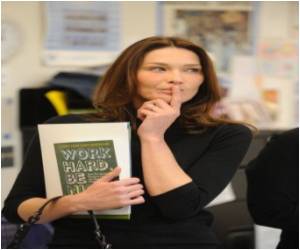
Now, a new research has suggested that having our self-interest imposed upon us may help us to avoid feelings of guilt.
Psychological scientists Jonathan Berman and Deborah Small of The Wharton School of the University of Pennsylvania speculated that removing individuals' sense of agency would remove their feeling of responsibility for an outcome, leaving them free to enjoy self-interest without feeling selfish.
In their first study, Berman and Small recruited 216 undergraduates to participate in a laboratory study. Upon arriving, each participant was given a bonus of 3 dollars. Some of the participants were told to donate their 3 dollars to the non-profit charity UNICEF (imposed-charity condition), some participants were told to keep the money for themselves (imposed-self-interest condition), and some participants were told that they could choose what to do with the money (choice condition).
Just as the researchers hypothesized, those students who were told to keep the money for themselves reported being happier with the outcome than those who were told to donate the money to charity and those who were free to choose.
Berman and Small speculated that the students were happier specifically because they didn't have to choose between the self and others. But it's possible that they also could have been happier because there was no choice at all, so the researchers decided to conduct a second experiment. This time, all of the participants had to choose between two options.
Advertisement
The participants in the self-interest group, who could only choose between options that would benefit themselves, reported being the happiest. These findings confirm that it's specifically the conflict between self and others that reduces happiness, not the mere presence of a choice.
Advertisement
All participants were first asked to say whether they would prefer to keep or donate bonus money. They were then randomly assigned to one of two groups - the first group was told that they would receive their preference, while the second group was told that a computer choose for them.
Of those participants that preferred to keep the bonus money - the self-interested outcome - the participants who believed that the computer made the choice felt better than those who believed that they had made the choice, even though all of the participants had originally said that they would prefer to keep the money.
Among those who preferred to donate the bonus money - the prosocial option - the participants who thought that the computer made the choice didn't feel significantly better or worse that than those who thought they had made the choice.
Together, these three studies show that people are happier when a self-benefiting option is imposed upon them because it frees them from having to take responsibility for the outcome.
Of course, that doesn't mean we necessarily recognize the value of having our options constrained in this way.
When Berman and Small asked another group of students which condition they would prefer hypothetically - imposed self-interest, imposed charity, or choice - 63.6 percent said that they would prefer to have a choice. So, having the freedom to choose between various options is important, but it doesn't ultimately make us happier.
The study was published in Psychological Science, a journal of the Association for Psychological Science.
Source-ANI









